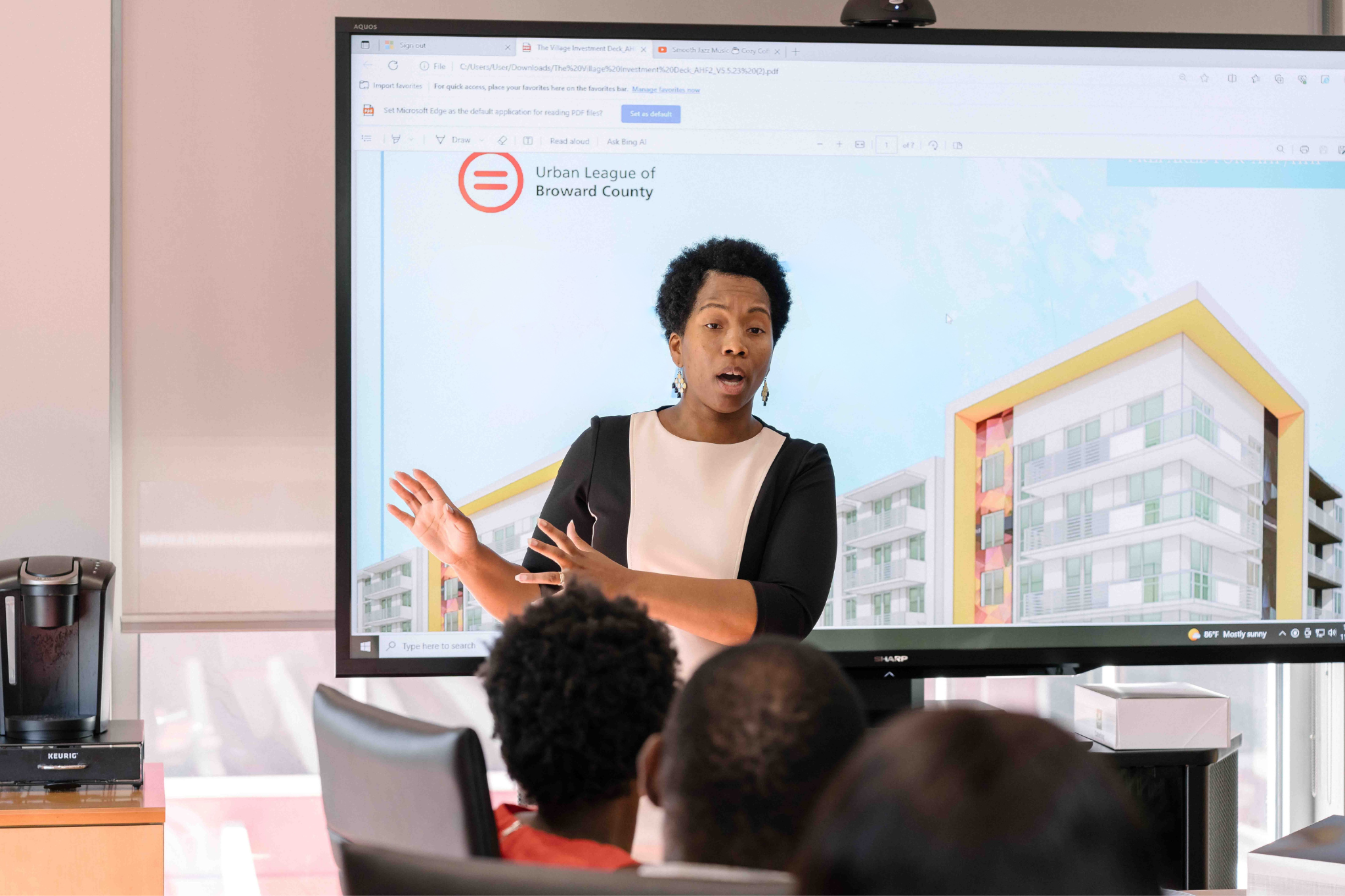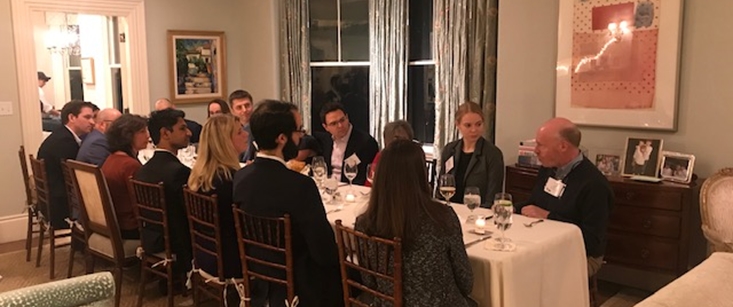

“I never considered a difference of opinion in politics, in religion, in philosophy, as cause for withdrawing from a friend. ” --Thomas Jefferson
On the evening of February 28, 2019, 30 HBS alumni gathered at the home of Sarah Perry (MBA 1995) and Tony Kingsley (MBA 1991) for a Business and Society “Jeffersonian” dinner, one of an inaugural series of alumni conversations focused on broader societal issues that HBS alums are uniquely positioned to impact. Modeled after dinners Thomas Jefferson held at Monticello and the White House, these dinners are taking place across the country as a way to build connections and share conversation. For our table, guests were given the following topic primer along with some reading prior to the event:
We live in a time of historic wealth but also increasing economic inequality and political unrest. Many are questioning how business systems and leaders have or have not contributed to this phenomenon.
A broad and rich topic to be sure, and it resulted in a thought-provoking, inspiring evening. Guests greeted each other over cocktails and appetizers and then split into two tables for the dinner conversation. Each table had a moderator who laid the ground rules, kicked off the conversation, and worked to lightly guide the flow of conversation and to make sure all voices were heard. What followed was a rich and lively conversation among alumni across graduation years spanning from 1975-2018. The two tables reconvened after dinner to share the highlights of their discussion, which turned out to be remarkably similar in scope and conclusions.
Guests discussed how the social contract is changing, in part as a result of globalization and increased emphasis on optimizing profit at the expense of employees and customers. We debated how philanthropy is important, but that true impact on many social issues requires systems change and policy reform. We talked about how single actors and individual businesses cannot solve system limitations on their own, but we were also uncomfortable with the idea that business leaders have a limited role to play. Indeed, we talked about how we each feel a responsibility to contribute to solutions while acknowledging that those solutions may result in relative pain for those of us in power. We drew on our own experiences of how business leaders can be a powerful voice for change and can lead by example in many areas including sustainability and fair wage practices. We talked about how shifting systems can be done through pragmatic solutions, cross-sector collaboration, and unstructured movements.
Suffice it to say we didn’t “solve” the issue of the ideal relationship of business and society, and it is difficult to summarize two hours of rich discussion in a short blog post, but the end result was a palpable energy and sense of connection in the room. In many ways it reminded me of a really good case discussion as a student at HBS - there was careful and respectful listening to each other, sharing of different perspectives, and a unique set of context and skills that each person brought to the discussion - all of which built into a greater understanding of the issue and of each other.
Guests stayed long after the dinner sharing ideas, swapping book recommendations, and planning to meet up individually over coffee. Personally, I enjoyed the opportunity to connect on a topic that I am passionate about with a group of people outside of my personal and professional circle, and I particularly enjoyed the inter-generational aspect of the conversation that I find missing in my everyday life. All in all, it was a thoroughly enjoyable and intellectually satisfying night and I look forward to participating in more Jeffersonian dinners and would encourage others to do the same.
If you are interested in the pre-read materials for this Jeffersonian Dinner, see the links below:
Gospel of Giving for the New Gilded Age, by Elizabeth Kolbert, August 27, 2018, The New Yorker Magazine
The Remoralization of the Market, by David Brooks, January 10, 2019, The New York Times
Larry Fink’s 2019 Letter to CEOs
Hedge fund billionaire Ray Dalio: “Capitalism basically is not working for the majority of people,”by Catherine Clifford, January 16, 2019, Make It/CNBC
The Pursuit: A Better World for All, Starting at the Margins Professional musician and economist Arthur Brooks travels around the globe asking the question: How can we lift up the world, starting with those at the margins of society? This is a trailer for the movie.